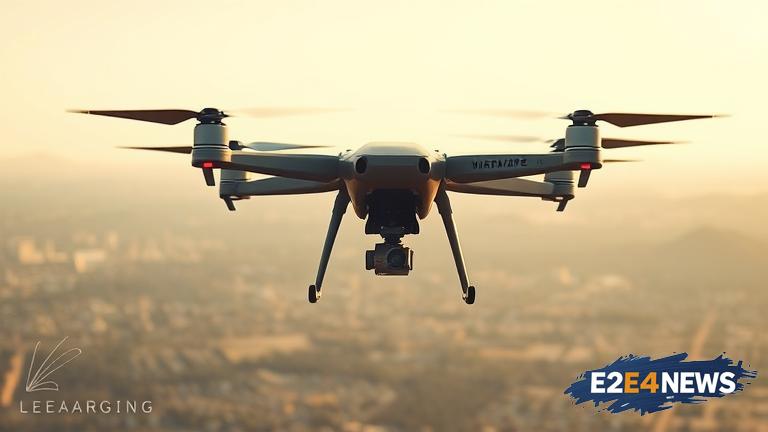The world is witnessing a significant shift in the way wars are fought, with drones playing a crucial role in modern combat. The use of unmanned aerial vehicles (UAVs) has become a staple in military operations, providing a cost-effective and efficient way to gather intelligence, conduct surveillance, and carry out attacks. The development of drone technology has been rapid, with advancements in artificial intelligence, navigation, and communication systems. This has enabled drones to operate with greater autonomy, precision, and lethality. The United States, China, and Israel are among the countries at the forefront of drone development and deployment. The use of drones has raised concerns about the ethics of warfare, with some arguing that it makes it easier for countries to engage in conflict without putting their own soldiers at risk. Others argue that drones provide a more precise and targeted way to conduct military operations, reducing the risk of civilian casualties. The drone industry is expected to continue growing, with estimates suggesting that the global market will reach $43 billion by 2025. As the use of drones becomes more widespread, there are concerns about the potential for them to be used by non-state actors, such as terrorist organizations. The development of counter-drone technologies is also becoming a priority, as countries seek to protect themselves from the threat of drone attacks. The use of drones in warfare is not without its challenges, however, with issues such as cybersecurity, data protection, and international law all needing to be addressed. Despite these challenges, it is clear that drones are here to stay, and their use will continue to shape the future of modern combat. The impact of drones on the environment is also a concern, with the potential for them to be used to monitor and protect wildlife and natural resources. As the world becomes increasingly reliant on drone technology, it is essential that we consider the implications of their use and work to develop regulations and standards that ensure their safe and responsible deployment. The use of drones in search and rescue operations is also becoming more common, with their ability to quickly and easily access remote or hard-to-reach areas making them an invaluable asset in emergency situations. In conclusion, the use of drones in warfare is a rapidly evolving field, with significant implications for the future of modern combat. As the technology continues to develop and improve, it is essential that we consider the potential consequences of their use and work to ensure that they are used in a responsible and ethical manner.
